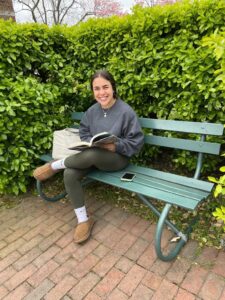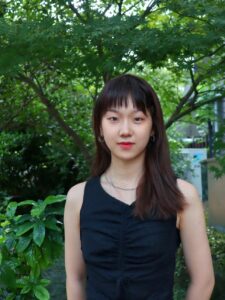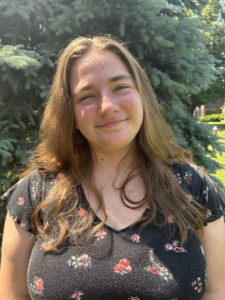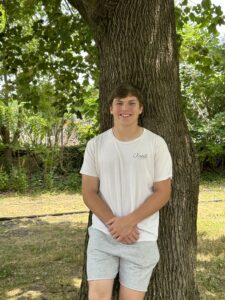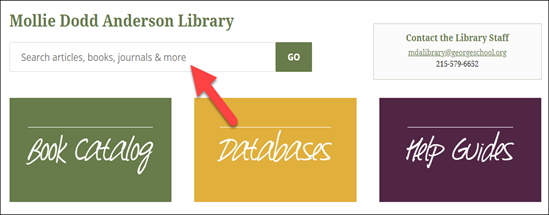IB Program This Week: April 15, 2024
IB exams begin next week! In the meantime, IB classes continue to go strong…
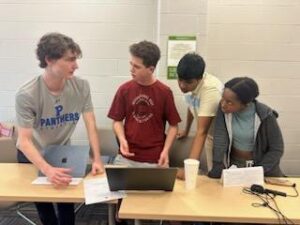
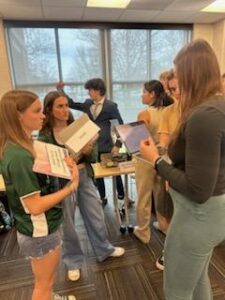
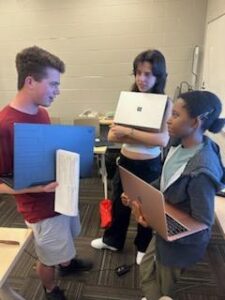
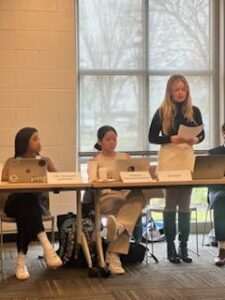
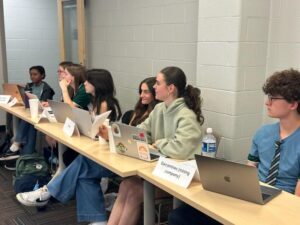
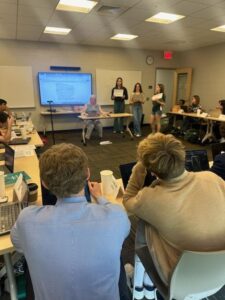
IB Global Politics and IB Economics students engaged in interdisciplinary action!
IB Global Politics and IB Economics students worked together on a Model United Nations-style simulation, addressing development in the Democratic Republic of Congo. Students were assigned roles from state leaders to intergovernmental organizations (IGOs) and non-governmental organizations (NGOS) to multinational corporations, and convened to discuss and propose solutions for reducing conflict and promoting well-being in the area.
Their work in this simulation highlighted IB Approaches to Teaching and Learning skills, the pedagogical underpinnings of the IB Diploma Programme.
Approaches to Teaching ensures that IB learning is accomplished via:
- Teaching through inquiry
- Teaching through concepts
- Teaching developed in local and global contexts
- Teaching focused on effective teamwork and collaboration
- Teaching differentiated to meet the needs of all learners
- Teaching informed by assessment
Approaches to Learning is characterized by learning
- Thinking skills
- Communication skills
- Social skills
- Self-management skills
- Research skills
Meanwhile, the IB Visual Arts Exhibitions continued for the third and final week. Students continued to display thoughtful technical understanding and reveal personally reflective narratives as well, which attested to the incredible detail and care with which they develop their artistic vision. Through this work, students demonstrate IB Learner Profile traits in abundance!
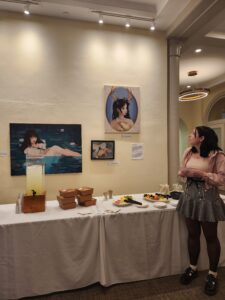
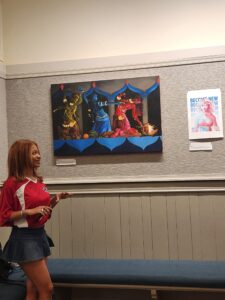
IB Visual Arts students are not all full diploma candidates. Students may choose to take individual IB subjects, thereby participating in our IB program by becoming IB Course Candidates that seek to earn an individual subject-specific certificate. Ruby Mae Colson (’24) used the Japanese aesthetic Jira Kei to generate both self-reflective work and work that focused on perceptions of beauty while Shaela Johnson (’24) used her art to narrate a journey of self-discovery and acceptance.
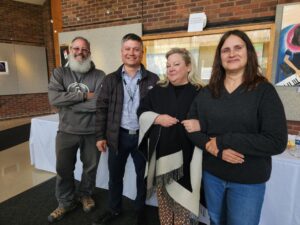
Our IB Visual Arts faculty—Amedeo Salamoni, Jo Adachi, Danielle Picard-Sheehan, and Susan Ross—are talented and dynamic artists in their own right as well as great teachers.
The IB Learner Profile traits: inquirers, knowledgeable, thinkers, communicators, principled, open-minded, caring, risk-takers, balanced, reflective.
GENERAL ANNOUNCEMENTS FOR JUNIORS & SENIORS IN IB COURSES
IB EXAMS
Students enrolled in IB courses are required to take IB exams. Parents may check IB exam registrations on the portal.
IB exams at George School begin on Thursday, April 25 and will conclude on Friday, May 17. There is no rescheduling of IB exams, so it is vital that students attend their exams. The schedule, including room locations, has been posted to students.
IB guidelines for these exams are very strict and students must adhere to the lists of permitted items and non-permitted items. For instance, students should bring ballpoint pens in blue or black ink (not gel or erasable pens) and they may bring a clear plastic water bottle. Bringing food, phones, or a watch of any kind will result in automatic disqualification.
Exam guidelines, including the IB conduct of examinations notice to students and a list of items not permitted, were reviewed at both Junior and Senior IBDP meetings during the week of April 1, and this information is being communicated again during the week of April 15. Additionally, this information will be communicated to all students taking exams and posted around the school just prior to exams. Students have access to the IB exam schedule already, including information about locations and other details.
IB reflection mods, which begin in Term 7 on Tuesday, April 30 are designed for IB examination preparation and study. The IB Coordinator and IB subject teachers may call study sessions during this time (required for senior IBDP candidates), but it is also designated space for students to prepare for their individual exam schedules.
There will be a Closing Senior IBDP Celebration for students on Friday, May 17.
Students can check their IB exam registrations on the portal: “Students” tab –> “My GS” –> “My IB Registrations.” This page shows the IB exams for which they are registered (please note that financial aid considerations are not listed here). It also shows their personal code and pin, which they may need to list on some Internal Assessments (IAs) and which must be used to access IB results in July.
Students with financial aid are automatically granted aid on exams commensurate with their financial aid package. Questions should be directed to Mike Murray (Associate Director of Admission and Director of Financial Aid).
LEARNING ACCOMMODATIONS
The deadline for inclusive access learning accommodations requests was October 1. All requests are being evaluated by IBO.
IB DIPLOMA PROGRAM GENERAL INFO
IBDP meetings throughout the year will offer a way to connect, to handle some administrative details concerning IB exam registration, and address matters specific to either Diploma Program Year 1 (DP1) or Diploma Program Year 2 (DP2).
All IBDP meetings are posted to students’ Canvas IB tiles and to the George School calendar.
CLASS OF 2025
Regular meetings for Junior and Senior IB Diploma Program (IBDP) students are an important way to stay on top of deadlines, review IB policies and guidelines, bond as a cohort, and, of course, celebrate accomplishments through IB shoutouts!
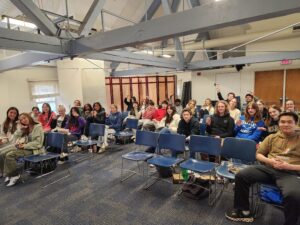
Junior IBDP students attended a cohort meeting on Wednesday, April 3.
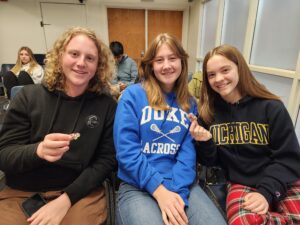
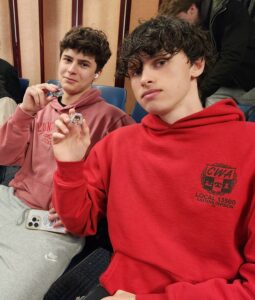
Students were cheered for their perseverance and were given mini cars as prizes to encourage them to keep driving forward!
EXTENDED ESSAY (EE)


EE Supervisor, Chris King, offers feedback to IBDP student Katharine Coleman (’25).
One of the IB Core components required to earn the diploma, the Extended Essay (EE) is a 4,000-word independent research essay which fosters development of the IB Learner Profile characteristics.
Students select one of the six IB groups—Group 1: Studies in Language and Literature, Group 2: Studies in Language Acquisition, Group 3: Individuals and Societies, Group 4: Experimental Sciences, Group 5: Mathematics, and Group 6: The Arts—in which to write their essay and select a subject within this group, identify a topic of interest, and subsequently develop a research question.
During IB Core: Inquiry, an introductory one-mod IB course at the beginning of the year and, with the help of IB Coordinator Kim McGlynn and the EE Coordinator Carly Wassel, students begin this process and eventually connect with an EE Supervisor, or expert in the field, to further assist their efforts.
Students often take risks as they may end up writing in a subject or on a topic they had not previously identified or consider a new perspective, engage in extended reflection as they hone their independent line of inquiry, and learn to communicate with their EE Supervisor.
While this essay presents a significant challenge for students, it also offers an incredible opportunity to develop important skills necessary for college and life beyond, from facility with independent research to balancing one’s time to refining critical thinking and critical writing abilities. Students become genuine experts on their topic, knowledgeable about a subject of interest, and principled in their approach, as they generate conversation between various sources and their own ideas.
Most of all, students learn to genuinely care for their work and take pride in their accomplishments, especially after working through the setbacks and challenges that are a natural part of the writing process for such a lengthy assignment.
The IB Learner Profile traits: inquirers, knowledgeable, thinkers, communicators, principled, open-minded, caring, risk-takers, balanced, reflective.
• The EE is not a formal part of any subject course beyond these first five weeks in “IB Core: Inquiry” and is written independently. However, Carly Wassel (EE Coordinator) works closely with students to ensure that they have ample support throughout this process, including a clear infrastructure of steps and deadlines to ensure successful completion of this major research essay. In addition to Carly, students will work closely with an EE Supervisor of their choice. Students are advised to maintain good communication with their EE Supervisors and to pay particular attention to attribution and citation format. Successful completion of the EE is a requirement for earning the IB Diploma.
• The full EE draft was due Monday, April 8. Any student with outstanding work must contact Carly Wassel (EE Coordinator) and Kim McGlynn (IB Coordinator) immediately.
CREATIVITY, ACTIVITY, SERVICE (CAS)
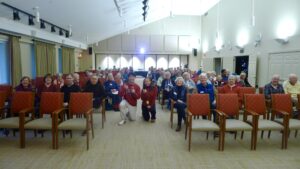

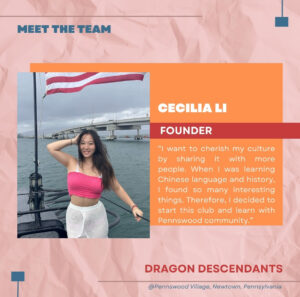
Creativity, Activity, Service (CAS) is an integral part of the IB Diploma Program, and the CAS Project is a major component of this work. CAS Projects must be a month-long in duration, collaborative in nature, and adherent to the CAS stages of development: investigation, preparation, action, reflection, and demonstration. For their CAS Project, juniors Cecilia Li (’25) and Peter Tang (’25) hosted “Welcoming the Year of the Dragon at our Lunar New Year Celebration: An intergenerational Experience” at Pennswood Village, a neighboring retirement community.
Around 70 residents participated in the event, and the students were glad that everyone enjoyed the presentation on the Lunar New Year! At the end of the meeting, there was a Q&A session that focused on Chinese history and tradition, followed by a delicious taste test of the dumplings they made for the residents. Credit goes to fellow junior IBDP student, Charlie Pfalzgraf (’25), for taking photos of the event.
Like all CAS Projects, this project took a lot of collaborative planning and preparation over time and adhered to the CAS stages of development! From coordinating with Pennswood as well as George School’s IB Coordinator and Service Learning Coordinators to constructing a great presentation complete with PowerPoint slides to cooking authentic Chinese dumplings, Cecilia and Peter initiated and investigated what to do and prepared for the event. Then, they sprang into action as great public speakers and presenters.
Afterwards, Cecilia reflected on the event, observing that it was “one of the biggest highlights in my life.” She noted that, “We not only shared our experiences with Lunar New Year, we also invited the residents to talk about their impressions of this traditional Asian holiday. I could genuinely feel how much fun both the audience and we were having during the event!”
Cecilia and Peter will continue to demonstrate what they have learned by presenting additional sessions at Pennswood—they plan to do at least five more!—and continuing to share their CAS Project experience with others.
• At the beginning of the year, students were introduced to CAS requirements, which are fulfilled as a natural part of being a GS student, and completed some (group) CAS experiences through their IB Core: Inquiry course. Throughout the year, students engage in CAS experiences and submit CAS reflections at various checkpoints. Students must check Canvas for any revisions to be made. Students who are behind with this work or who have been contacted by Kim McGlynn (IB Coordinator) must respond immediately. Regular and successful completion of CAS is a requirement for earning the IB Diploma.
• The IB Core: CAS Status Check was due Friday, March 29. Any student whose work is outstanding must meet with Kim McGlynn immediately.
THEORY OF KNOWLEDGE (TOK)
• Students were introduced to the TOK requirement and engaged in some initial TOK thinking exercises through the IB Core: Inquiry course at the beginning of the year. Students are now engaged in TOK work, beginning formal exploration of TOK concepts and working to complete the TOK Exhibition.
Upcoming Meetings
• The next required Junior IBDP meeting, ““IB Exams,” is on Monday, April 15. All IBDP meetings are posted to students’ Canvas IB tiles and to the George School calendar.
CLASS OF 2024
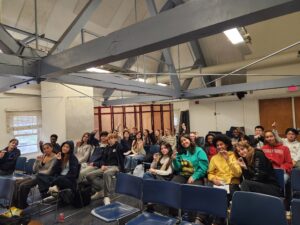
Senior IBDP students attended a cohort meeting on Monday, April 1. All joking aside, students were reminded of the incredible perseverance they’ve demonstrated by working through all the challenges they’ve faced in this program and given mini cars to encourage them to “keep on truckin’” till the end!
Based on IB Faculty nominations, students were recognized for IB Learner Profile awards and celebrated for their efforts with small prizes, such as “galaxy slime” because they’re truly “out of this world”!
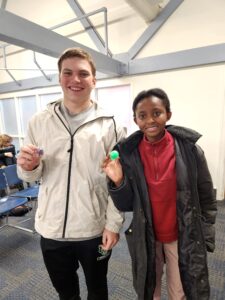
Inquirers: Axton Berry (’24) and Elizabeth Muthengi (’24)
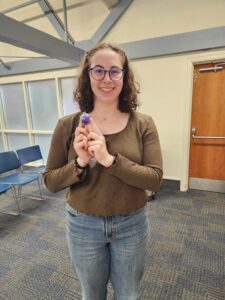
Knowledgeable: Catherine Meurer (’24)
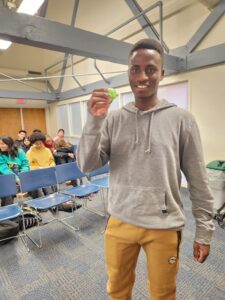
Thinker: Peter Kiarie (’24)
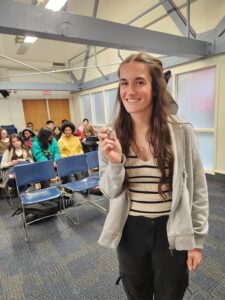
Communicator: Alice Morrison (’24)
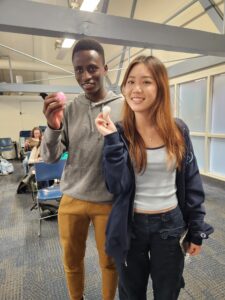
Principled: Peter Kiarie (’24) and Elizabeth Chun (’24)
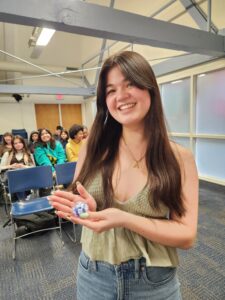
Open-Minded: Alexa Nygren (’24)
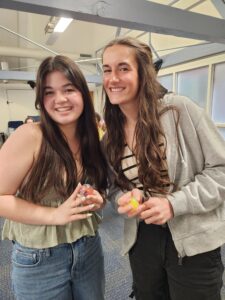
Caring: Alexa Nygren (’24) and Alice Morrison (’24)
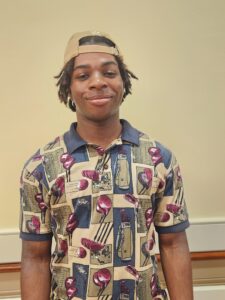
Risk-Taker: Ellison Murray (’24)
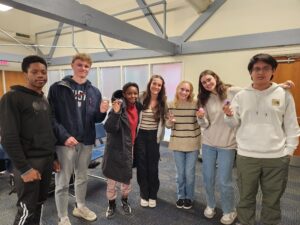
Balanced: Adam Jean (’24), Sean Renshaw (’24), Elizabeth Muthengi (’24), Alice Morrison (’24), Megan Garrabrant (’24), Basha Harrington (’24), and Jack Ni (’24)
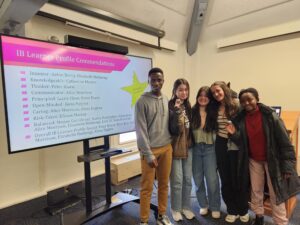
Overall IB Learner Profile Award to those students that best exemplify all 10 IB Learner Profile traits: Peter Kiarie (’24), Flora Kim (’24), Alexa Nygren (’24), Alice Morrison (’24), and Elizabeth Muthengi (’24)
EXTENDED ESSAY (EE)
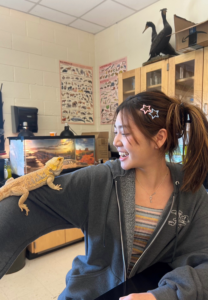
Senior IBDP student Elizabeth Chun (’24) in the George School science classroom
One of the IB Core elements and a requirement to earn the diploma, the Extended Essay (EE) is a 4,000-word independent research essay. Although a formidable challenge for any high school student, this assignment is a wonderful opportunity to gain knowledge in a particular subject, to pursue a specific topic of interest, and to develop research and critical writing skills that benefit students in a myriad of ways. For Elizabeth (Lizzie) Chun, the EE offered strong preparation for a robust learning experience at a University of California Irvine summer program.
Testimonial from Lizzie Chun (’24): “When I decided to write my Extended Essay on Biology simply out of interest, I had no idea where to begin. However, with the help of my supervisor, Pascal [Pascal Lanciano is the George School Science Department Head], I was able to obtain a thorough understanding of the process of writing as well as the methodology of research. With this experience at hand, I was confident with my research abilities when joining the UCIXGATI BEAM program, a summer program that features STEM research and innovation, during my junior year. Joining this program allowed me to apply the knowledge I had acquired when I worked on my Extended Essay, such as collecting relevant data, organizing my thoughts, and writing, along with gaining invaluable insight into conducting university-level research in a professional setting. Consequently, I was able to develop a valuable research piece, which was accepted by the electronic journal called International STEAM Communications. This has been a rewarding experience and I am certain that it will serve me well in my future endeavors in the STEM fields. I am grateful for this opportunity!”
• All students have completed their essays and this work has been authenticated and confirmed. All Extended Essays have been submitted to IB for evaluation.
CREATIVITY, ACTIVITY, SERVICE (CAS)
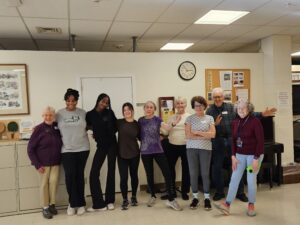
Creativity, Activity, Service (CAS) is an integral part of the IB Diploma Program. As part of this requirement, students are expected to complete a CAS Project that “challenges students to show initiative, demonstrate perseverance, and develop skills such as collaboration, problem-solving, and decision-making” (IB Creativity, Activity, Service Guide). Students who complete CAS Projects in the Service strand may also earn credit for their George School service-learning requirement.
Recently, several IBDP students teamed up to host dance workshops for our friends at Pennswood Village, a neighboring retirement community. This CAS Project was initiated by senior Alexa Nygren (’24) and developed in partnership with Halaylah Lewis-McGlothan (’25) and Bimby Olaleye (’25). Together, these three students ensured that everyone had a great time getting in rhythm and following their lead!
• Students must continue to complete and document their CAS work throughout the year. Adherence to deadlines, proper submission of reflections, and maintenance of their CAS portfolios is crucial. Students who are behind with this work or who have been contacted by Kim McGlynn (IB Coordinator) must respond immediately. Regular completion of CAS is a requirement for earning the IB Diploma. Any student with outstanding work must meet with Kim McGlynn immediately.
• The CAS Portfolio Review is due by Friday, May 24. To complete this review, students must schedule the third CAS interaction, a brief one-on-one meeting, with the IB Coordinator. Given scheduling considerations, it is advisable to do so prior to IB exams, which begin on April 25.
THEORY OF KNOWLEDGE (TOK)
• Students completed their TOK Exhibitions last year. This year, they started their TOK work by writing a practice TOK essay on one of the May 2023 prompts and then completed and submitted their TOK Essays on one of the May 2024 prompts as well as a TOK Progress and Planning (TKPPF) form detailing three formal interactions with their TOK teacher. All TOK Essays and TKPPF forms have been submitted to IB for evaluation.
UPCOMING MEETINGS
• The next required IBDP meeting for the full cohort, “Concluding IB,” is on Wednesday, April 17. All IBDP meetings are posted to students’ Canvas IB tiles and to the George School calendar.
• There will be a Closing Senior IBDP Celebration for students on Friday, May 17.
Contact IB Coordinator Kim McGlynn at ibcoordinator@georgeschool.org with any questions.

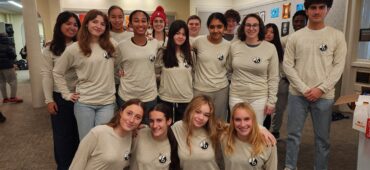



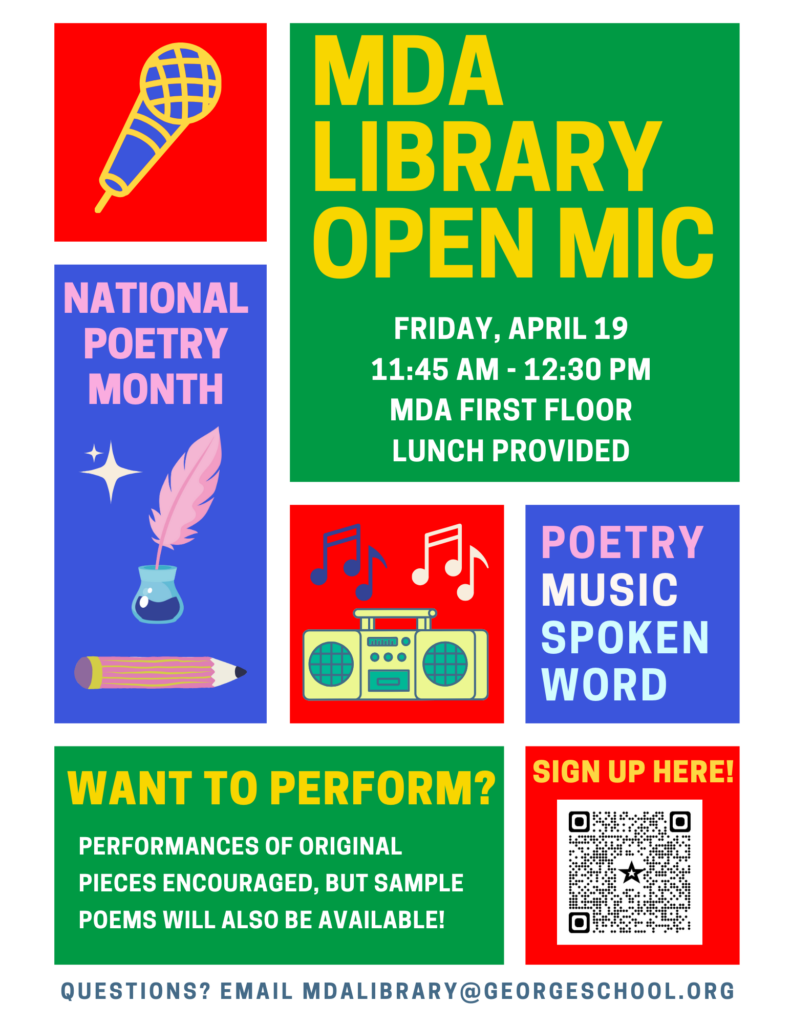
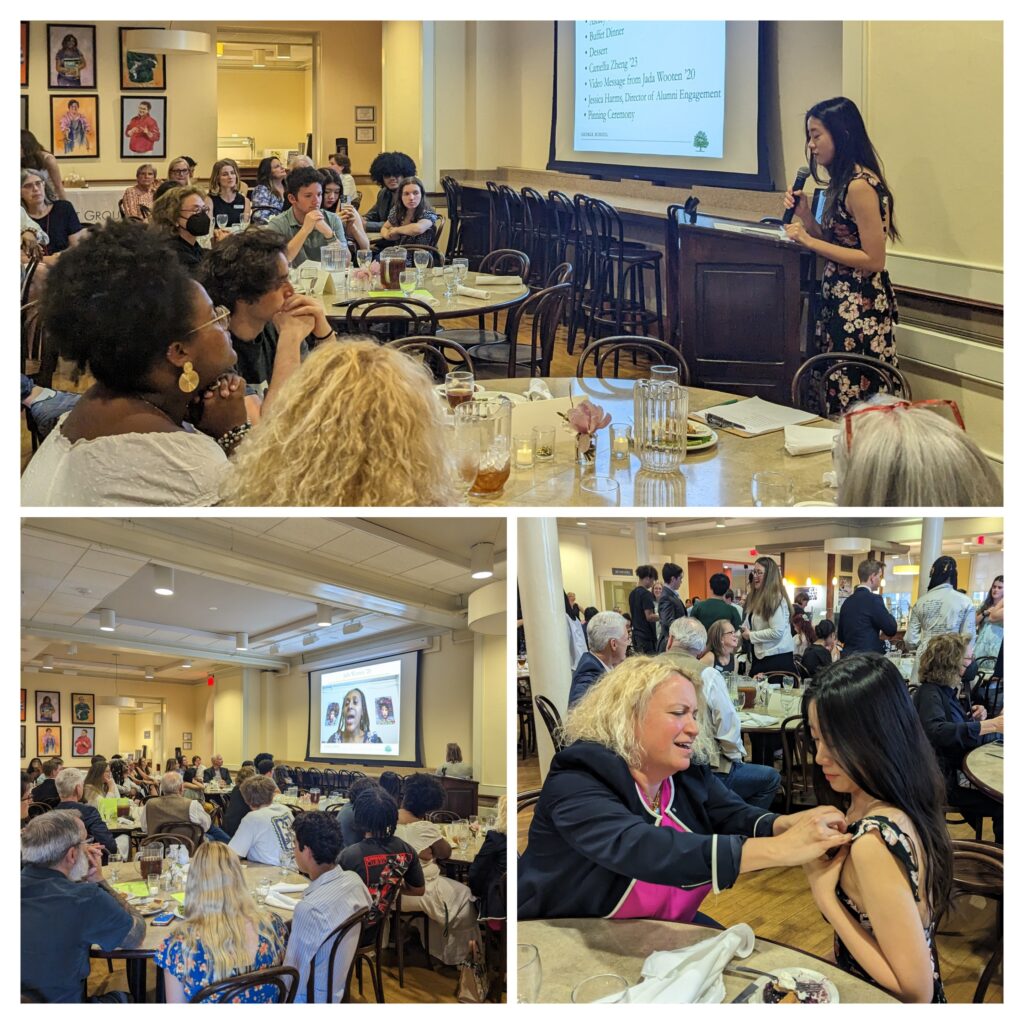
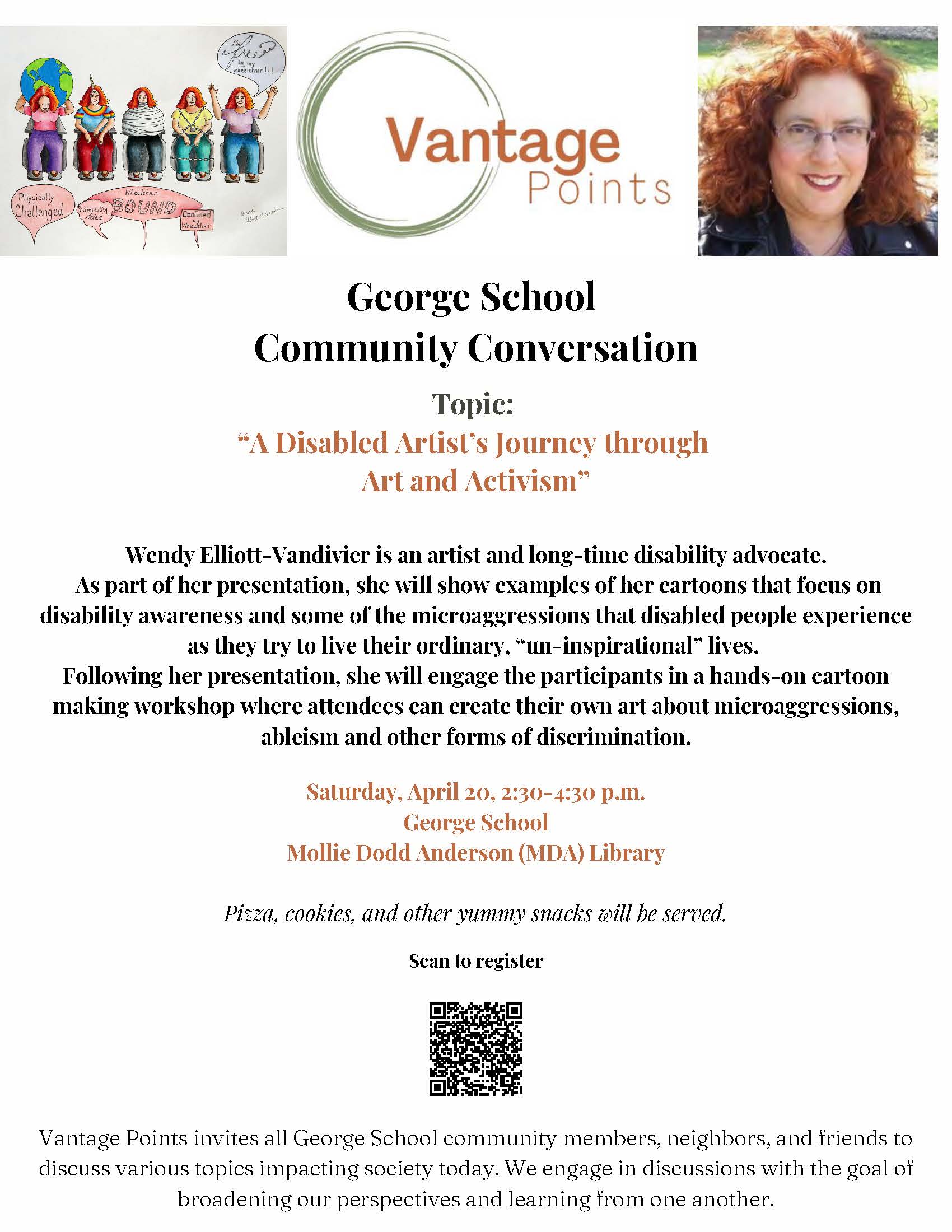
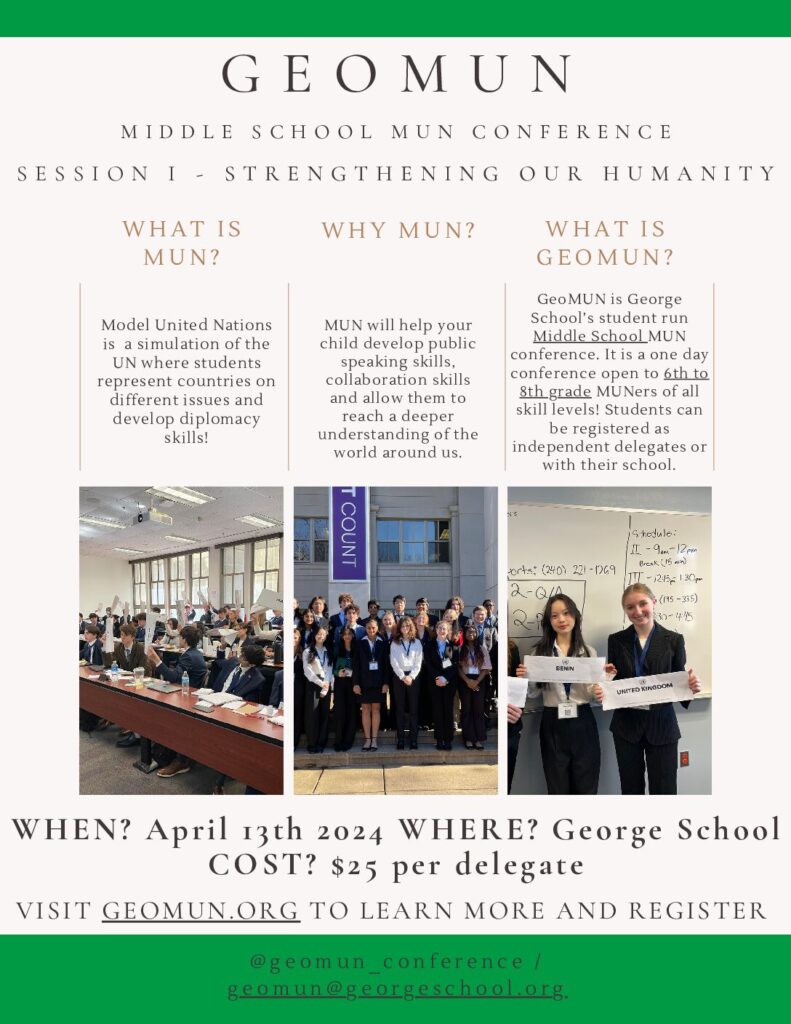
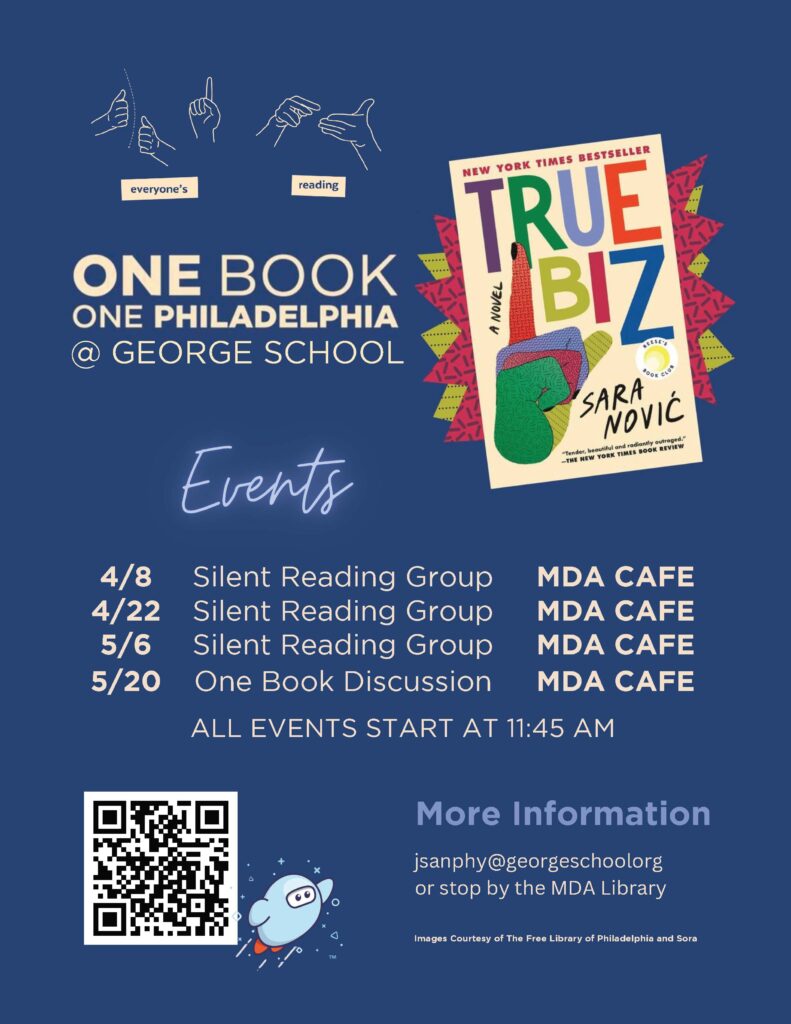
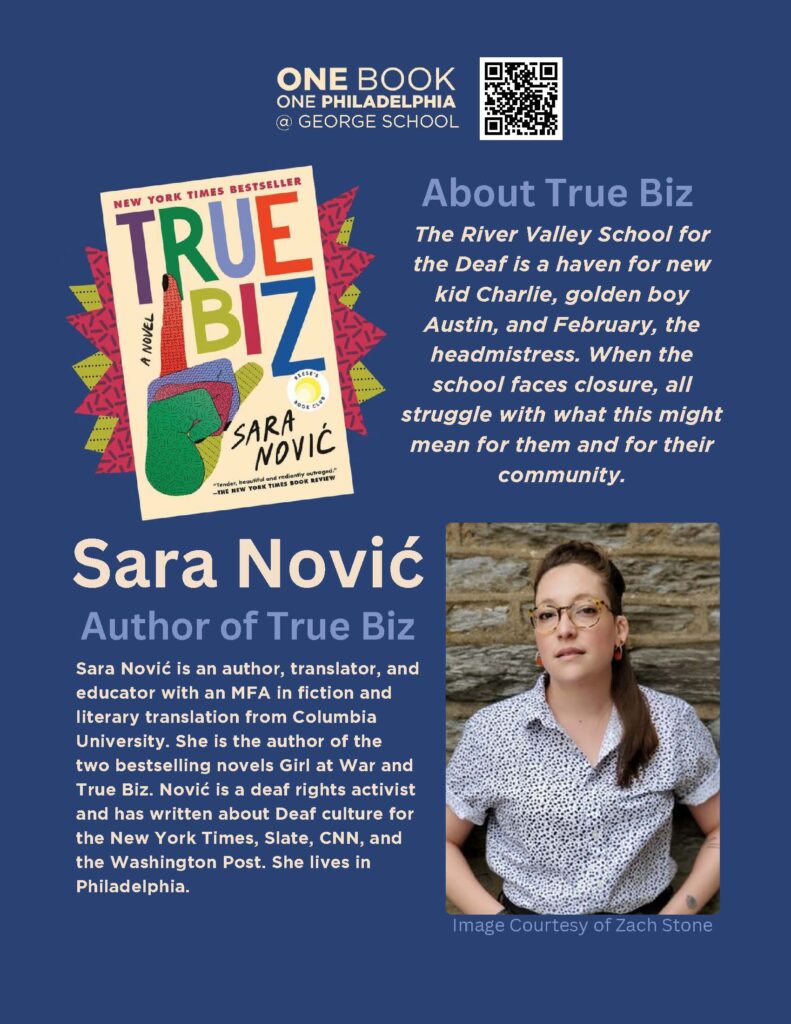
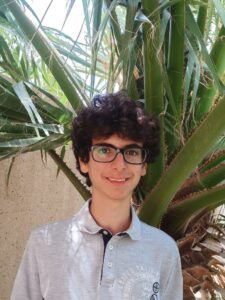 Monastir, Tunisia, and Amman, Jordan
Monastir, Tunisia, and Amman, Jordan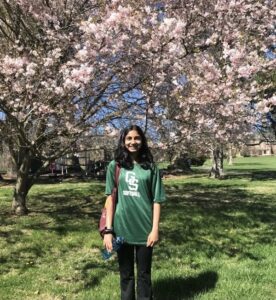 Irvine, CA
Irvine, CA Feasterville-Trevose, PA
Feasterville-Trevose, PA New Hope, PA (Previously NYC)
New Hope, PA (Previously NYC)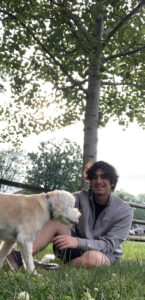 Richboro, PA
Richboro, PA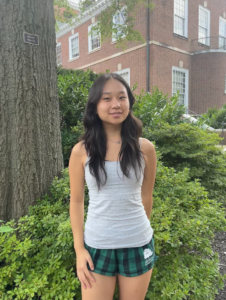 Englewood, NJ
Englewood, NJ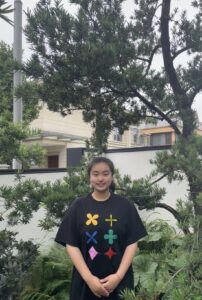 Ningbo, Zhejiang, China
Ningbo, Zhejiang, China Willingboro, NJ
Willingboro, NJ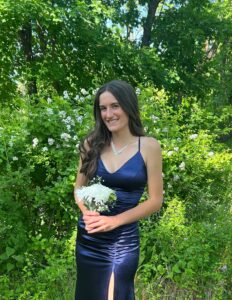 Yardley, PA
Yardley, PA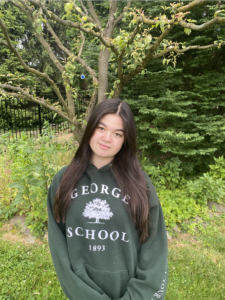 Newtown, PA
Newtown, PA Holicong, PA
Holicong, PA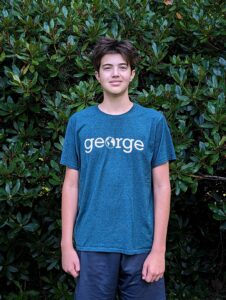 Newtown, PA
Newtown, PA Hamilton, NJ
Hamilton, NJ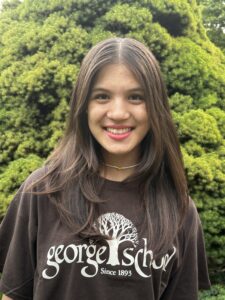 Yardley, PA
Yardley, PA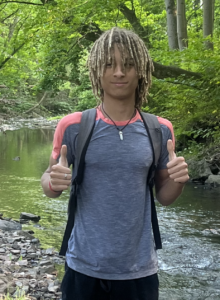 Lambertville, NJ
Lambertville, NJ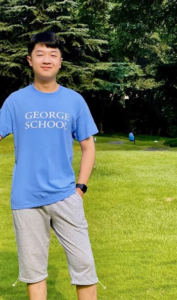 Chongqing, China
Chongqing, China Pennington, NJ
Pennington, NJ Yardley, PA
Yardley, PA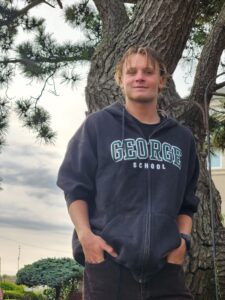 Bensalem, PA
Bensalem, PA Borgota, Colombia
Borgota, Colombia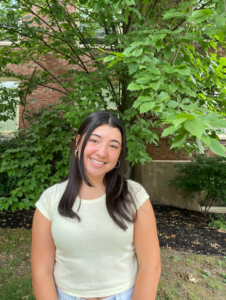 Newtown, PA
Newtown, PA Burlington, NJ
Burlington, NJ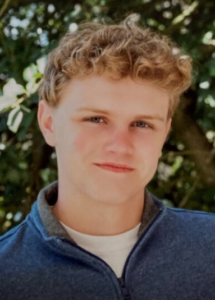 Langhorne, PA
Langhorne, PA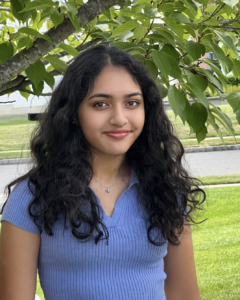 Princeton, NJ
Princeton, NJ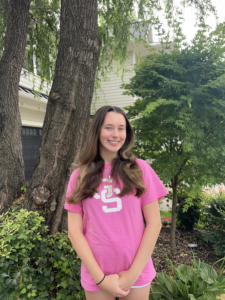 Langhorne, PA
Langhorne, PA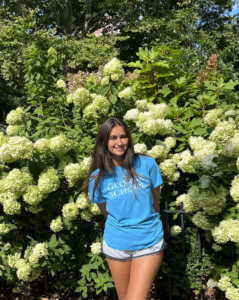 New York City, NY
New York City, NY New Hope, PA
New Hope, PA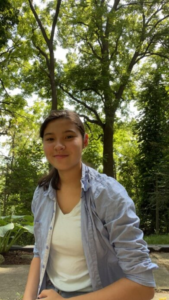 St. Catharines, Ontario, Canada
St. Catharines, Ontario, Canada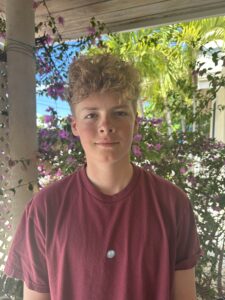 Providenciales, Turks and Caicos Islands
Providenciales, Turks and Caicos Islands Willingboro, NJ
Willingboro, NJ Princeton, NJ
Princeton, NJ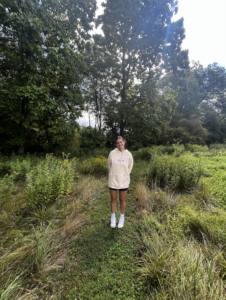
 Newark, NJ
Newark, NJ Trenton, NJ
Trenton, NJ Newtown, PA
Newtown, PA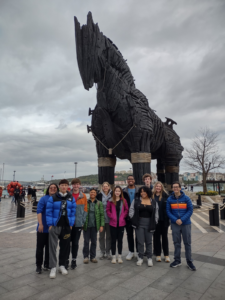
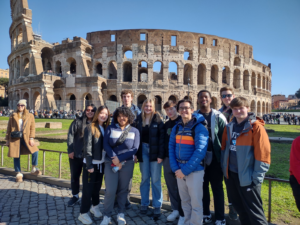
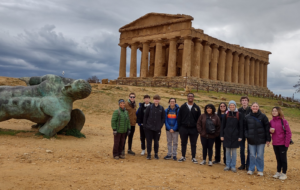

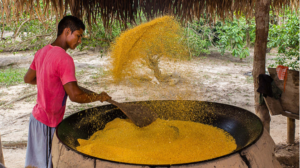
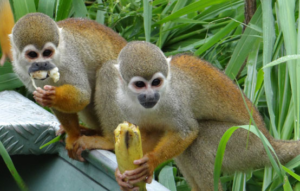

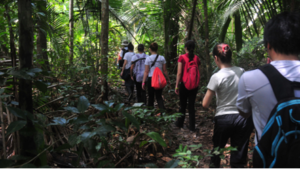
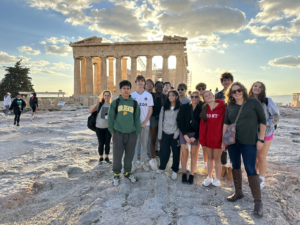
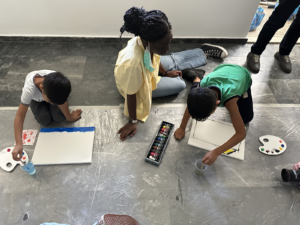
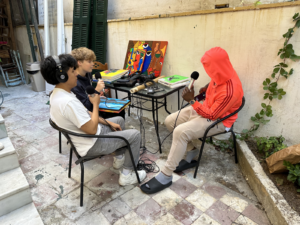
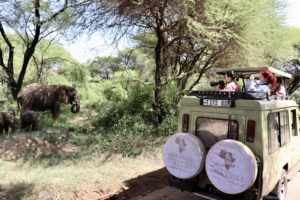
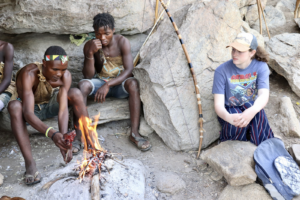
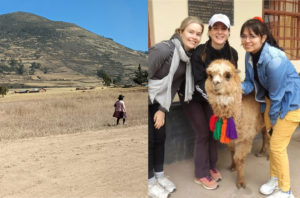
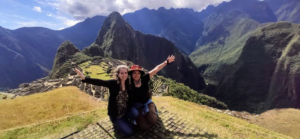


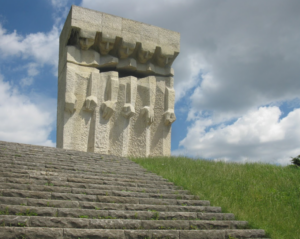
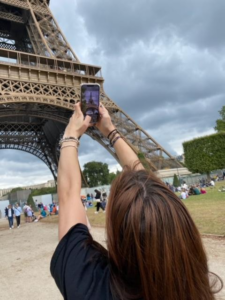
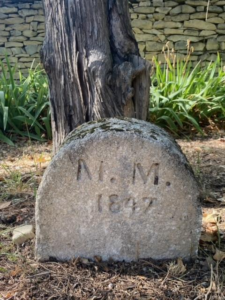
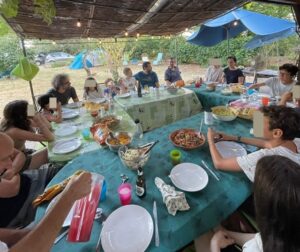
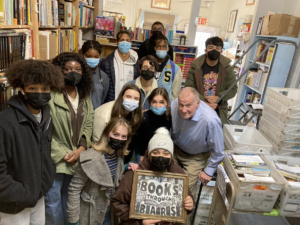
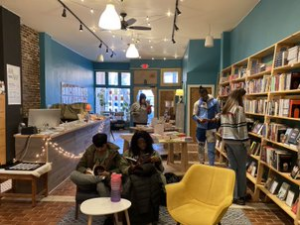
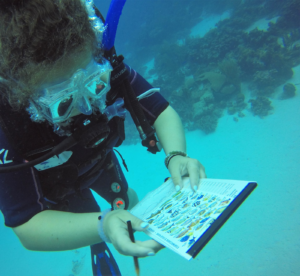
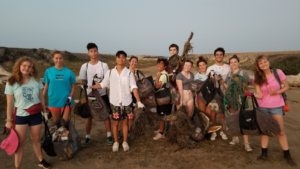
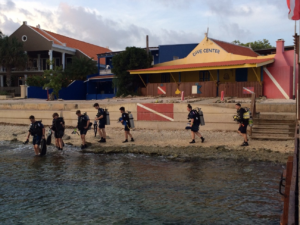
 Lawrence, NJ
Lawrence, NJ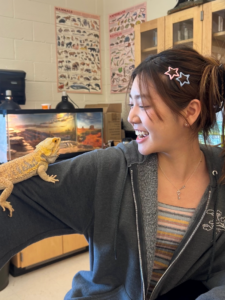 Seoul, South Korea
Seoul, South Korea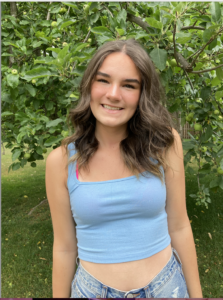
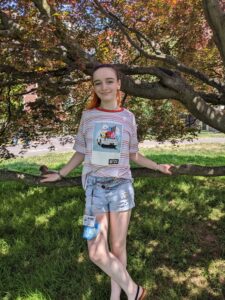 Milwaukee, Wisconsin
Milwaukee, Wisconsin Pennington, NJ
Pennington, NJ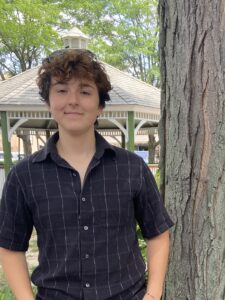 Jenkintown, PA
Jenkintown, PA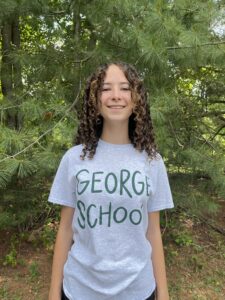 Ottsville, PA
Ottsville, PA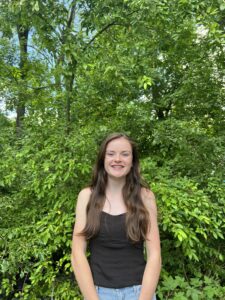 Yardley, PA
Yardley, PA Providenciales, Turks and Caicos Islands
Providenciales, Turks and Caicos Islands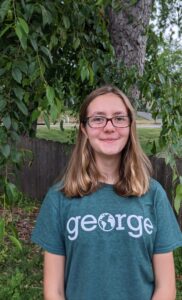 Hopewell, NJ
Hopewell, NJ
 Pottstown, PA
Pottstown, PA Playa del Carmen, Quintana Roo, México
Playa del Carmen, Quintana Roo, México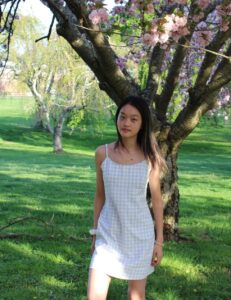 Shanghai, China
Shanghai, China Beijing, China
Beijing, China Yardley, PA
Yardley, PA Beijing, China
Beijing, China Holland, PA
Holland, PA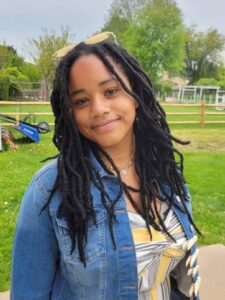 Langhorne, PA
Langhorne, PA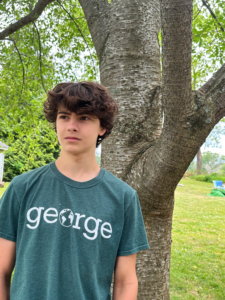 Ringoes, NJ
Ringoes, NJ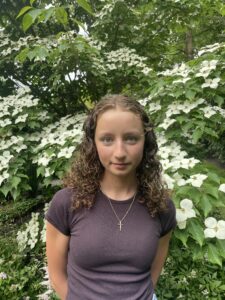 New Hope, PA
New Hope, PA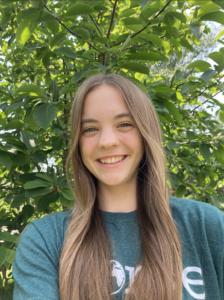 Dreshner, PA
Dreshner, PA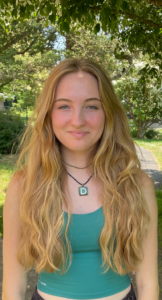 Yardley, PA
Yardley, PA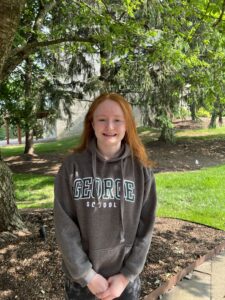 Yardley, PA
Yardley, PA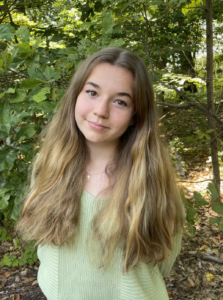 PA
PA

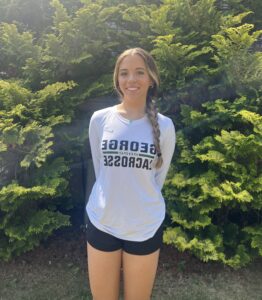
 Xi’an, China
Xi’an, China
